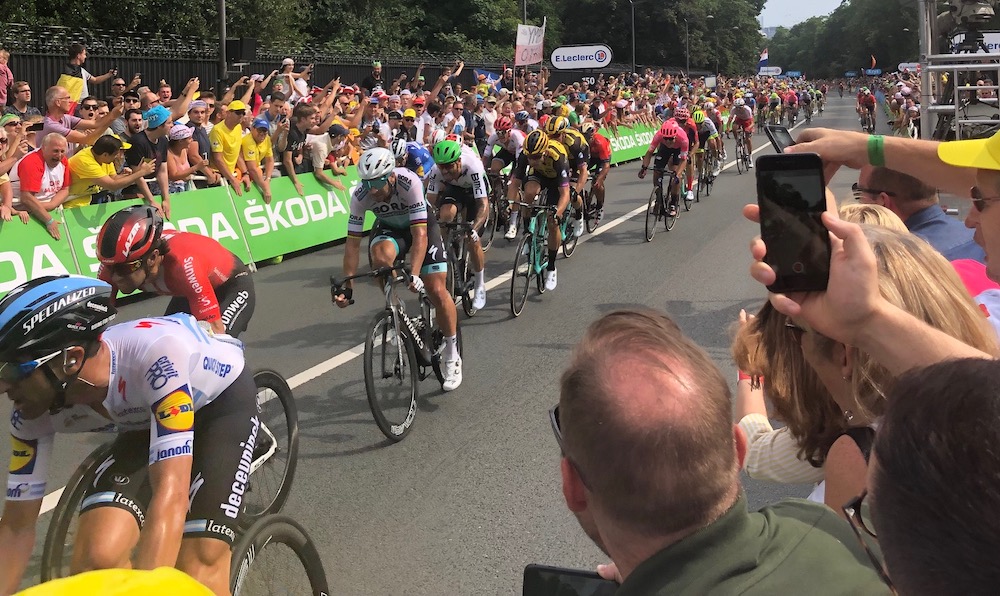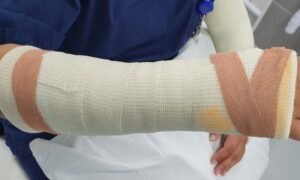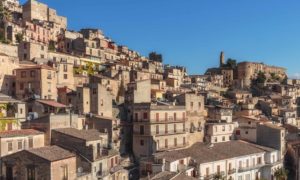Living in Europe as an expat is an entrée to amazing experiences from going to football (soccer) games in Barcelona to Formula 1 in Germany to huge music festivals such as Glastonbury in England.But if you want the ultimate European experience, there’s just one – the Tour de France, cycling’s greatest spectacle.
This year, there are 22 teams with 176 riders racing from the Grand-Place in Brussels to the Champs-Élysées in Paris, a total of 3,460 kilometers in 21 days of pure madness.
(It’s way more than just the riders. Each Tour de France team has at least a dozen support people including masseuses, medical personnel, mechanics, nutritionists, go-fers and all the people needed to keep teams moving, as well as the riders competitive and, well, alive.)
Because the Tour de France is 21 days of riders braving heat, cold, bad roads across every kind of terrain including mountains and the ever-present danger of being upended by overly-excited fans. And, of course, there are crashes and injuries, so this is a survival of the fittest event.
Though this is the tour of France, the contemporary versions start outside France in Germany and other countries, and for 2019, it sets out from Belgium.
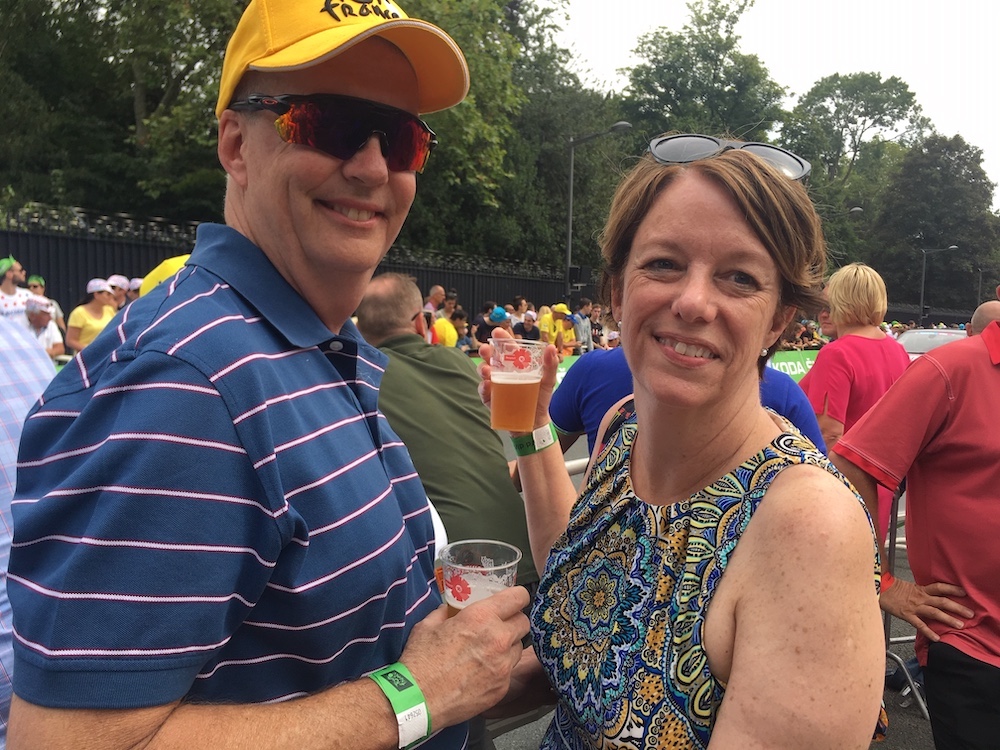
Chery Boyd, Dispatches co-CEO, and I are in Brussels with our friends Dr. Kris Bryant and Dean Brooks for the start. Dean is here for the racing, having competed in Brussels back in the day in the World Championship Duathlon, which combines biking and running.
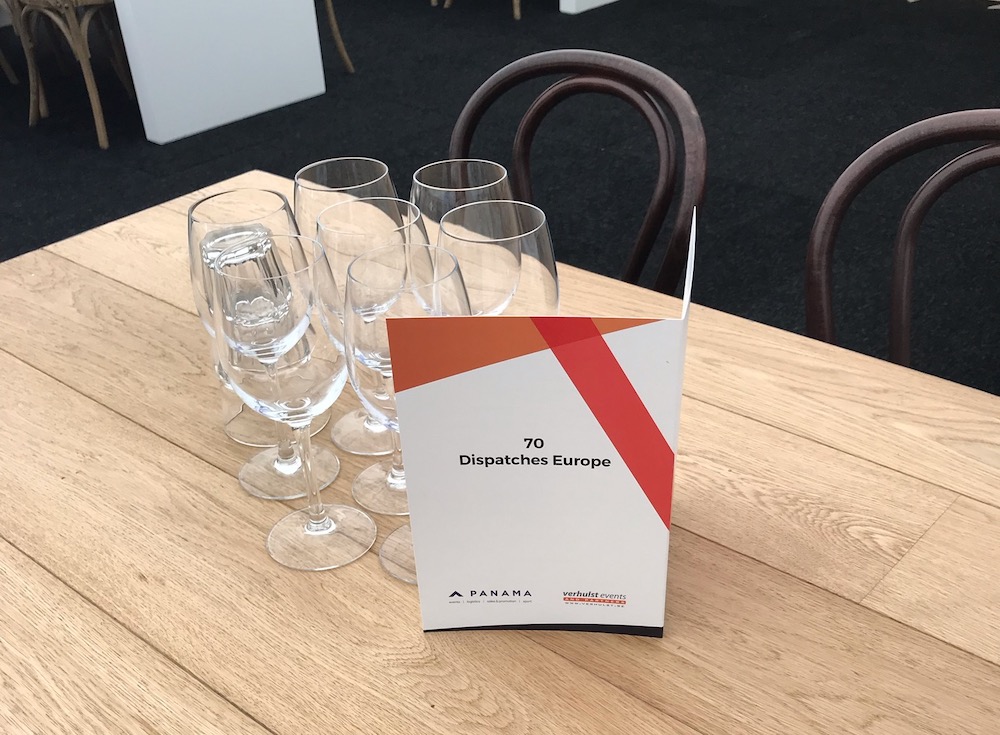
Kris and Dean have VIP seats close to the finish line next to the Atomium, the Brussels landmark left over from the 1958 World’s Fair.
I know nothing about cycling and I don’t have the attention span to sit through any sporting event. Besides, living in the Netherlands, we get to see grotesquely fit people racing around on bicycles every day. But I get it … the pageantry around the Tour de France draws people from all over the world and I’m a sucker for this kind of international gathering in one of the world’s most international cities.
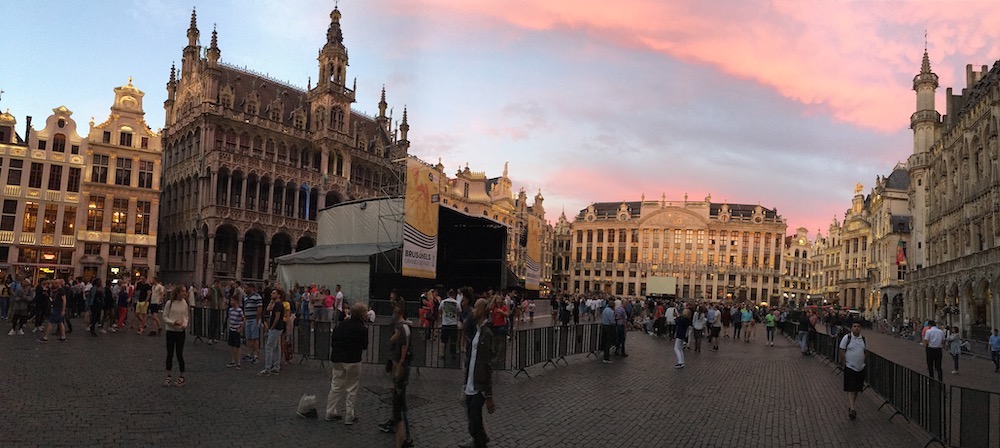
So we tagged along, and the atmosphere is electric. We were at the Grand Place Friday evening along with the rest of the world. We’ve been in and out of Brussels regularly for fun and business, but I have to say, the eve of the Tour was the perfect evening with a red sky. With the square all lit up, it was magical.
Dispatches: So, Dean, what is this all about?
Dean: The Tour de France 2019 starts 6 July at the Grand Place in Brussels and goes to Sunday, 28 July when the teams arrive on the Champs Élysées with only two days of rest over three weeks.
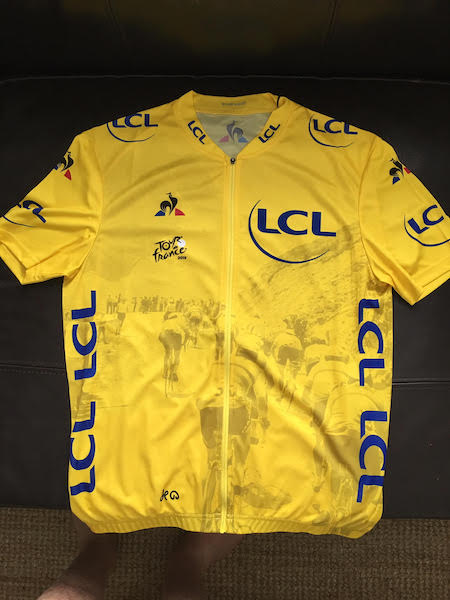
For the rest of the race, one of the riders who has the lowest time accumulated so far wears the maillot jaune, or yellow jersey. But today’s winner is only 4 seconds ahead. The best sprinter gets the green jersey. The king of the mountain gets a polka-dot jersey, and the white goes to the best young rider.
Each day of the tour lists all the towns the racers are going through and approximate times so you can plan your day.
Most of the races don’t start and finish in the same town. But today, the race starts and finishes in Brussels.
Dispatches: If you’re really a fan, can you follow along the entire tour?
Dean: Yes, there are tour companies that will take you through the full three weeks. If you have the money, they’ll take you to every single stage.
But there are also companies that do stages. Some companies just do the mountain stages, for example.
Dispatches: Which is where you recommend hard-core fans watch …
Dean: Personally, I recommend watching in the mountains. All the craziness is in the mountains … people running with the riders. They’re letting off smoke bombs.
Think how hard they’re trying to breathe and they’re going through smoke.
Dispatches: I know this is a dumb question, but I guess you can’t keep the fans out of the road for 3,500 kilometers?
Dean: Only the final few kilometers of each stage and the finish have barriers to keep the crowds away.
For the first six kilometers (today in Brussels), a car leads a parade of the teams. After that, the actual racing begins and they ended up at the Royal Castle of Lachen near the Atomium.
Dispatches: Bicycle racing is about the team, not individuals, right?
Dean: One person doesn’t lead from start to finish. The tour is a series of timed stages, with riders collecting bonus times and points which accumulate. After the first few days, the leader might be 10 seconds ahead, and he also gets bonus seconds (off his time) for winning stages.
Dispatches: So, why are there eight riders on a team?
Dean: Without the team, the leader can’t win. (The team) is there to protect the leader. They make sure he works less hard than anyone else. There will be a sprint to the end for the yellow jersey. But everyone behind him, everyone gets the same time as the leader though the winner gets a 10-second bonus.
Tomorrow (Sunday 7 July) will be team time trials. There will be time differences, so the guys competing for the top spot want to do well from point A to point B. The mountain stages are where the Tour de France is won because there, the winners will get minutes, not seconds.
Later, there will be elimination times that if riders fail to finish in a certain time, they’re out. Once they hit the mountains, the sprinters tend to drop off.
The real excitement today will be the finish. They know it’s a sprinters’ day today. Teams need sprinters, climbers and “domestiques,” the guys who don’t get the glory, but they’re part of the eight-man team, and they sacrifice themselves for the good of the team.
They peel off after they run out of energy and the next guy takes over until you get down to the team leader, who might sprint to the top of the mountain. But he’s on his own then.
So, the first day of the Tour de France is history, with Dutch rider Mike Teunissen the winner, covering 192 kilometers in 4 hours, 22 minutes and change.
Kris said there is incredible excitement and energy at the finish line. As the riders approach, the crowd erupts and started pounding on barriers, cheering their favorite rider. “This is such an international event. Everyone around us was speaking a different language,” she said.
A few notes from our first Tour de France:
• In Brussels for this gigantic event, there was no Wi-Fi in the VIP tents. Really? Because had this been the Netherlands, there would have been wall-to-wall 4G everywhere. What is it with Belgium, Germany and Wi-Fi?
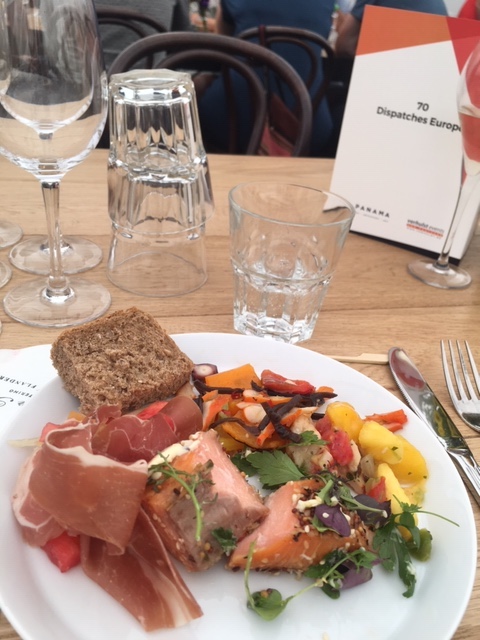
• Okay, the Belgians made up for it with some of the best food ever at a sporting event with hot and cold dishes including smoked salmon, wine on every table, and lots and lots of champagne.
• Brussels was a good host, large enough to have sufficient restaurants and hotels to accommodate the influx of fans. We hit Le Grande Café just a few blocks north of the Grand Place Friday night when the centrum was packed. We chose it because all the locals were there and they have a great selection of beers and authentic Belgian food. The staff was super-nice and didn’t mind that we went back and forth from English to French. (Bad French)
• The whole idea of this marathon race is to sell bicycles, though as Cheryl noted, there are massive branding opportunities because you have hundreds of thousands of people lining a 100-mile course, not to mention millions watching on international stations. Tissot, for example, is the official watch, and the company is taking pre-orders for three different Tour de France-branded versions.
• Finally, we want to note that Dispatches co-founder Cheryl Boyd has now been to the longest major sporting event in the world, the Tour de France at three weeks, and the shortest, the Kentucky Derby, at less than two minutes.
Co-CEO of Dispatches Europe. A former military reporter, I'm a serial expat who has lived in France, Turkey, Germany and the Netherlands.


